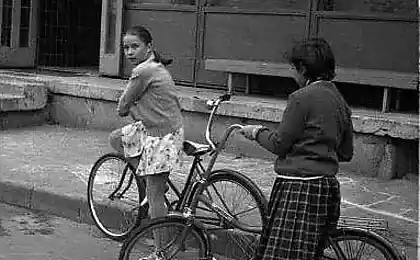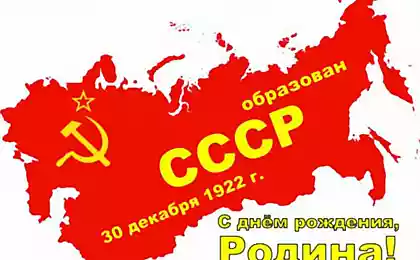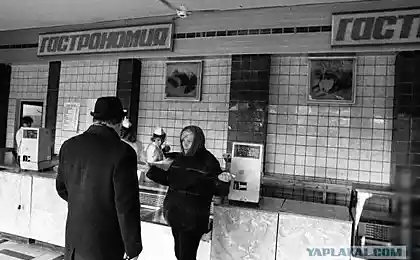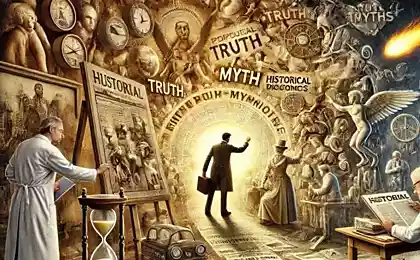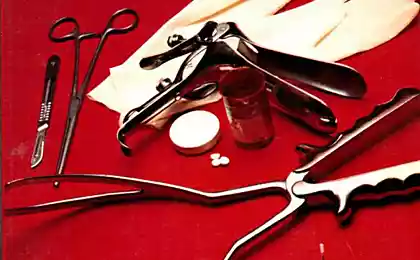207
The main myths about life in the USSR
On December 8, 1991, the leaders of Russia, Ukraine and Belarus signed the Belovezhsk Agreement, which stated that the Soviet Union ceased to exist as a "subject of international law and geopolitical reality."
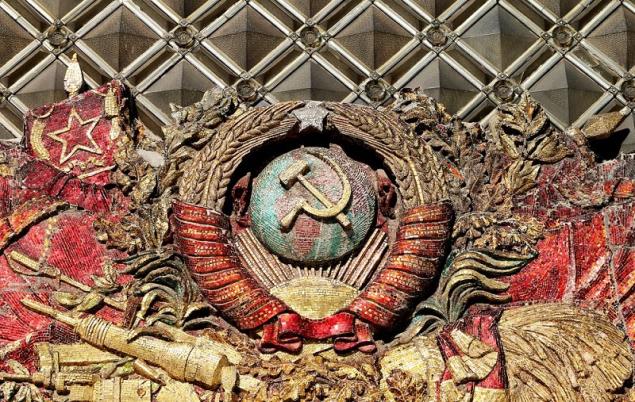
DepositPhotos
27 years later, before our eyes, the real Soviet past is rapidly overgrown with touching legends and turns into a myth of the “golden age”. “I want to go back to the USSR. How good it was then ..." - such words are increasingly heard not only from veterans, but also from quite young people.
Longing for the Soviet past, older people tend to idealize the Soviet Union through the prism of personal memories of times when women were significantly younger. And young people who are not familiar with the realities of developed socialism rely on popular myths.
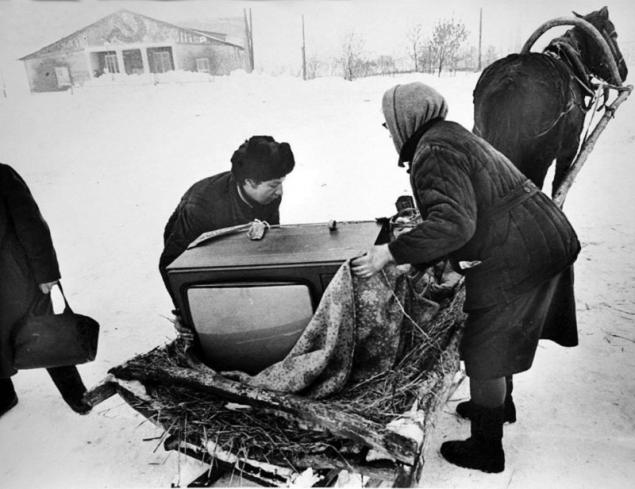
Was the life of Soviet citizens really as cloudless as they say? "Site" It refutes the main myths about the “golden age” of the USSR.
Soviet myths
In the head of each person there is a lot of things that were put into him in childhood. Despite the fact that the USSR is a thing of the past, we have preserved some of it and continue to pass on to our children.
It is not only knowledge, good manners, family traditions, but also different Soviet stereotypes. We tried to list the signs by which you can understand that you were brought up by immigrants from the USSR. Funny, but true!
In search of a better life, many people go to other countries. Editorial "Site" The story of a woman who returned home after a year in Italy. What was the reason?

DepositPhotos
27 years later, before our eyes, the real Soviet past is rapidly overgrown with touching legends and turns into a myth of the “golden age”. “I want to go back to the USSR. How good it was then ..." - such words are increasingly heard not only from veterans, but also from quite young people.
Longing for the Soviet past, older people tend to idealize the Soviet Union through the prism of personal memories of times when women were significantly younger. And young people who are not familiar with the realities of developed socialism rely on popular myths.

Was the life of Soviet citizens really as cloudless as they say? "Site" It refutes the main myths about the “golden age” of the USSR.
Soviet myths
- In the USSR there was free and the best education in the world
Education in the USSR was not always free. On September 1, 1940, the Council of People’s Commissars of the USSR decided to introduce tuition fees in the 8th, 9th, and 10th grades of secondary schools and higher educational institutions.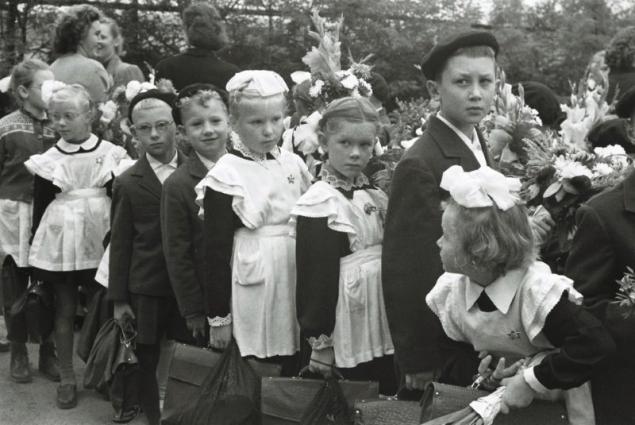
DepositPhotos
Studying in high school cost 150 rubles a year. For reference: the average monthly wage in 1940 was 331 rubles.
Millions of rural workers in those days worked for work at all and did not receive wages, so their children often could not study in high school. Paid education was abolished only in 1956, after Stalin’s death.
Many believe that Soviet education He inherited the best features of the educational system of tsarist Russia. In fact, Soviet education is the complete antipode of imperial.
When, in the presence of Anna Akhmatova, they said that Valentin Kataev was “still an intellectual,” she replied that he was just lucky: he managed to study in a pre-revolutionary gymnasium, where he gave a much deeper education.
Most of the developments that made the Soviet Union famous belong to scientists with pre-revolutionary education. Neither Kurchatov nor Korolev ever attended a Soviet school. And their colleagues of the same age also never studied at a Soviet school, or studied with professors who received pre-revolutionary education.
Many scientists believe that the successes of Soviet science were achieved rather in spite of the educational system: to achieve something, people had to overcome a huge number of difficulties and obstacles. When admission to universities, restrictions were applied not only on class, but also on national grounds.
All areas of education were strongly influenced by ideology. History was taught exclusively in a state-approved way: the interpretation of events could not differ from ideological attitudes, and many episodes were suppressed, for example, the entire history of Soviet repressions. - In the USSR was free and the best medicine in the world
The end of the USSR Soviet medicine The health care system was in a bad state. There was a shortage of drugs, often the simplest. The same sinister deficit, the stigma of socialism.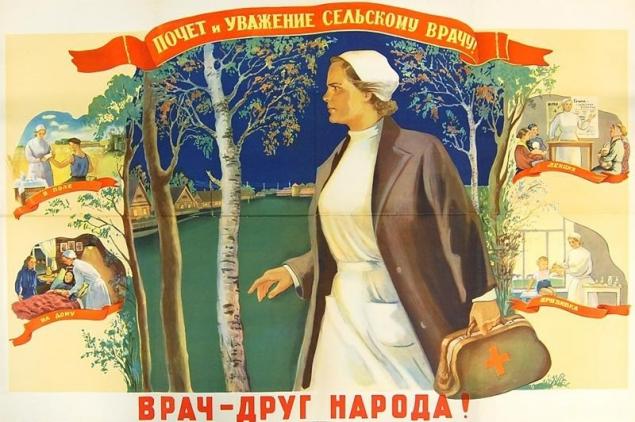
Imagine that your loved one needs medicines and they don’t, and for no money. In the course were contacts, took out, brought from other cities.
Party workers and security officers were treated in separate comfortable hospitals, where there was a completely different service, and all the necessary medicines, and imported disposable syringes.
Korney Chukovsky, who was treated at the Central Committee in the spring of 1965, wrote in his diary: “The hospital is shameful: the Central Committee workers and other nobles built a paradise for themselves, the people do not care.” The people are in hospital beds, on hungry rations, in mud, without the necessary medicines, in the power of rude nannies, tumbled sisters, and for the chinouches and their wives super-nutrition, over-treatment, over-civility, the greatest comfort.
The authorities were proud that there were more doctors in the Soviet Union than in other countries, but the quantity did not translate into quality. Hospitals were overcrowded, with people often lying in the hallway, waiting weeks and months in line for procedures and surgeries.
In Soviet dentistry there was no anesthesia in the treatment of teeth. It was only when removed, and then not always. It was believed that with relatively small surgical interventions, the patient can “suffer”.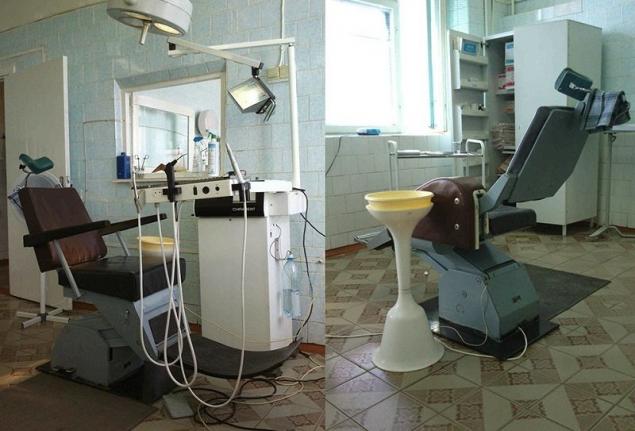
To remove the nerve, arsenic was laid in the tooth for several days, which was covered with a temporary filling. Then the seal was removed and the nerve was removed. Until the '90s. It is clear that citizens tried to go to such dentists less often, and therefore by the age of 35 they were left with a half-empty mouth. - In the USSR, everyone lived in prosperity.
The salary of most Soviet people was about 120 rubles. Living and raising children on it was very difficult, and opportunities to find additional income were few. People worked two jobs, went to the North, to Siberia.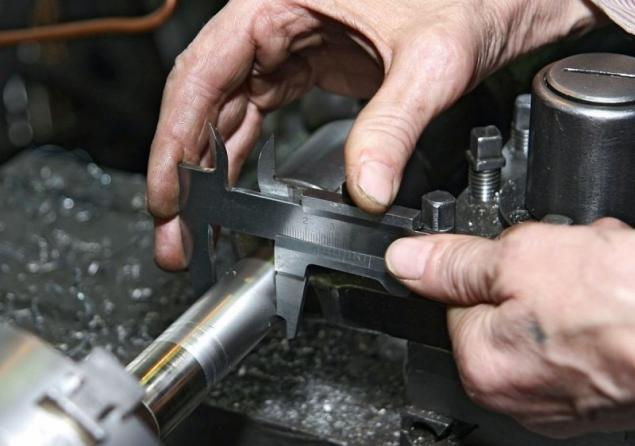
DepositPhotos
Until the second half of the 60s, kolkhozniks received only workdays for their work, suggesting in kind payment (most often with grain). It was convenient for the authorities, but, as practice has shown, an extremely inefficient way to develop agriculture.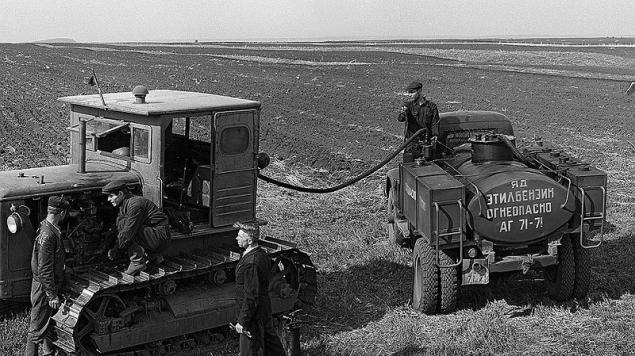
Even after earning money, the Soviet people could not always exchange it for goods. Many people remember how savings “for two Volgas” disappeared in Sberbank during perestroika, but they forgot that these Volgas had to wait for years.
In conditions of total scarcity, there was no word "buy" - there was the word "get". Store shelves were empty, if there were things, it was of very low quality. Everything was kept in touch, the notorious “you to me – I to you”.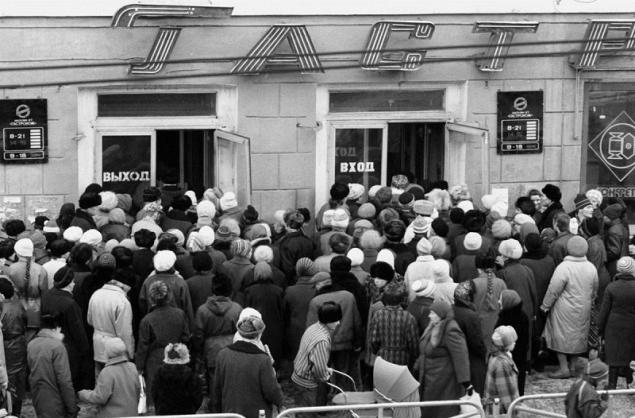
Shelves were also empty in grocery stores. Meat can only be found on the market at 5 a.m. And the milk battle? When the supermarket opened at 8 a.m., the crowd demolished everything to have time to grab the cherished package. - There was stability in the USSR.
State price controls and fixed wages have created a sense that the system is sustainable and will not change for decades. Some called it stability, others called it stagnation.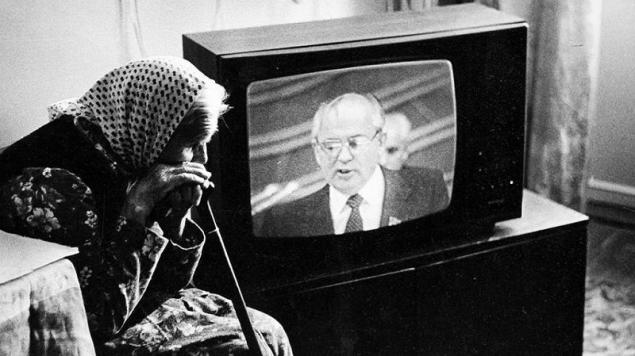
This “stability” and reluctance to change led to an increase in imbalances in the economy and eventually ended in collapse in the early 90s. It was the years of “stability” that led to the collapse of the USSR. - The USSR was all afraid.
This is the truth! Indeed, in the era of the Cold War, the West was seriously afraid of the military power of the USSR, especially nuclear missile power.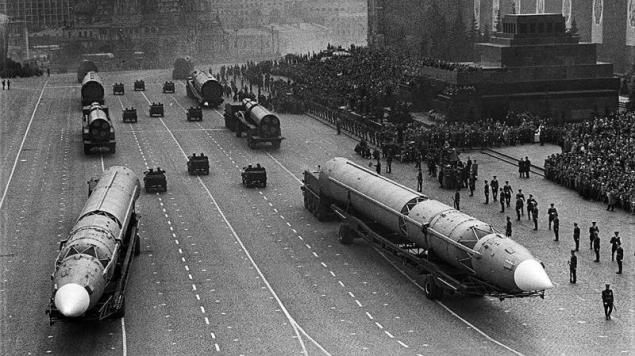
But its maintenance came at a very high price. Foreign Minister Shevardnadze declared in May 1988 that Soviet military spending was 19% of GNP, and in April 1990 Gorbachev rounded it down to 20%.
The economy, a fifth of which goes nowhere, becomes depressed and loses its resilience. This happened at the end of the Soviet era. Under the heavy burden of defense spending, the system collapsed, condemning most Soviet citizens to new trials.
In the head of each person there is a lot of things that were put into him in childhood. Despite the fact that the USSR is a thing of the past, we have preserved some of it and continue to pass on to our children.
It is not only knowledge, good manners, family traditions, but also different Soviet stereotypes. We tried to list the signs by which you can understand that you were brought up by immigrants from the USSR. Funny, but true!
In search of a better life, many people go to other countries. Editorial "Site" The story of a woman who returned home after a year in Italy. What was the reason?









